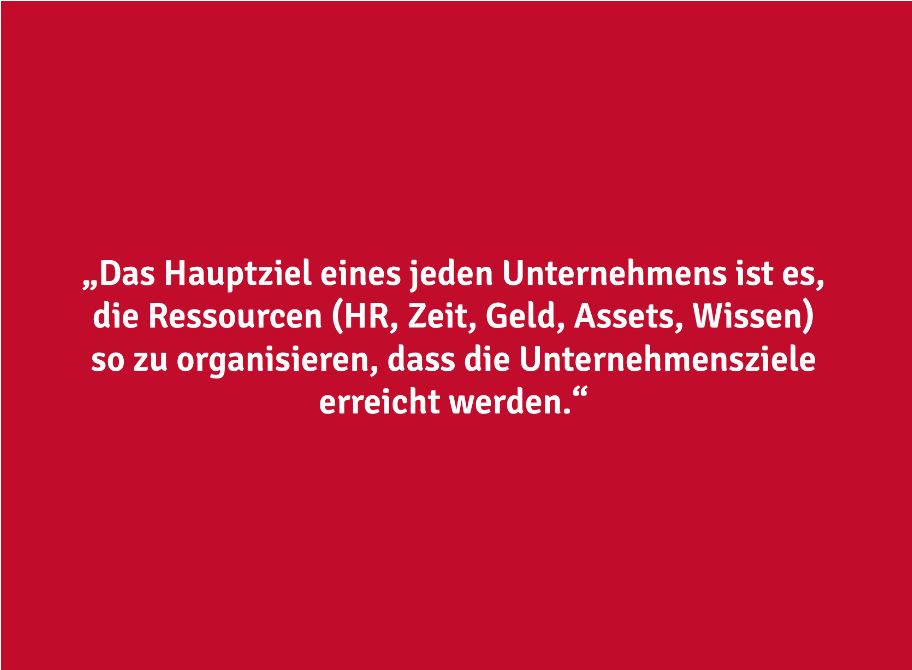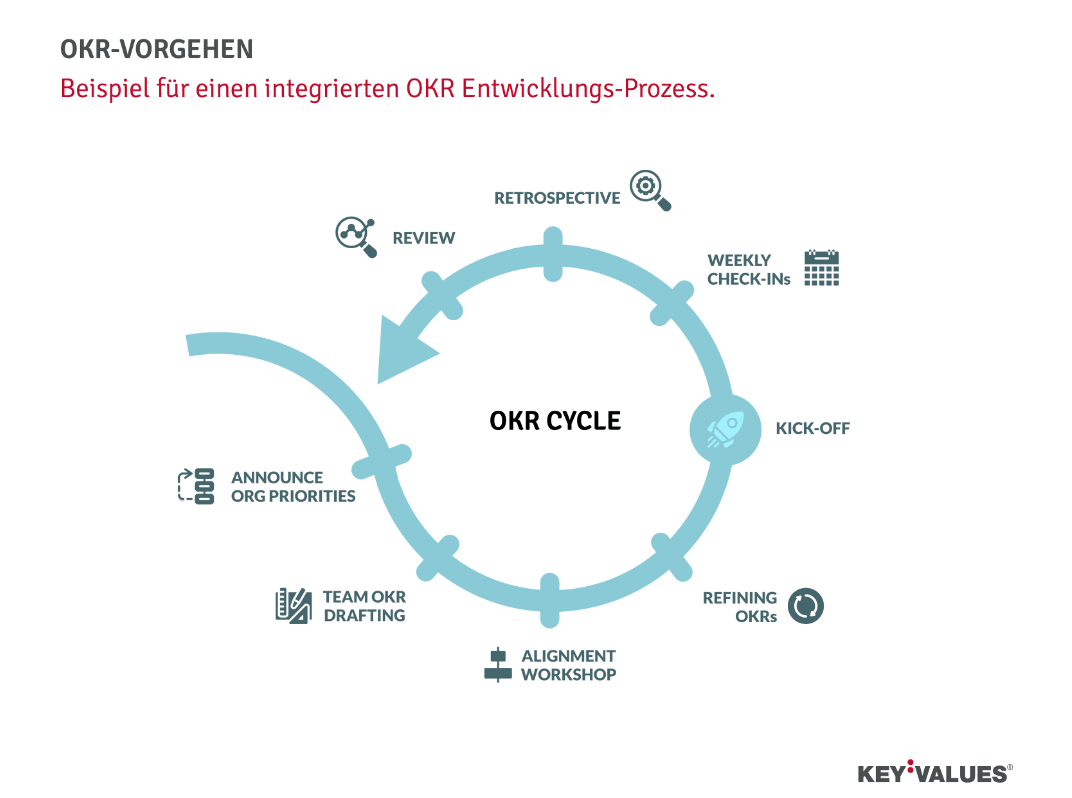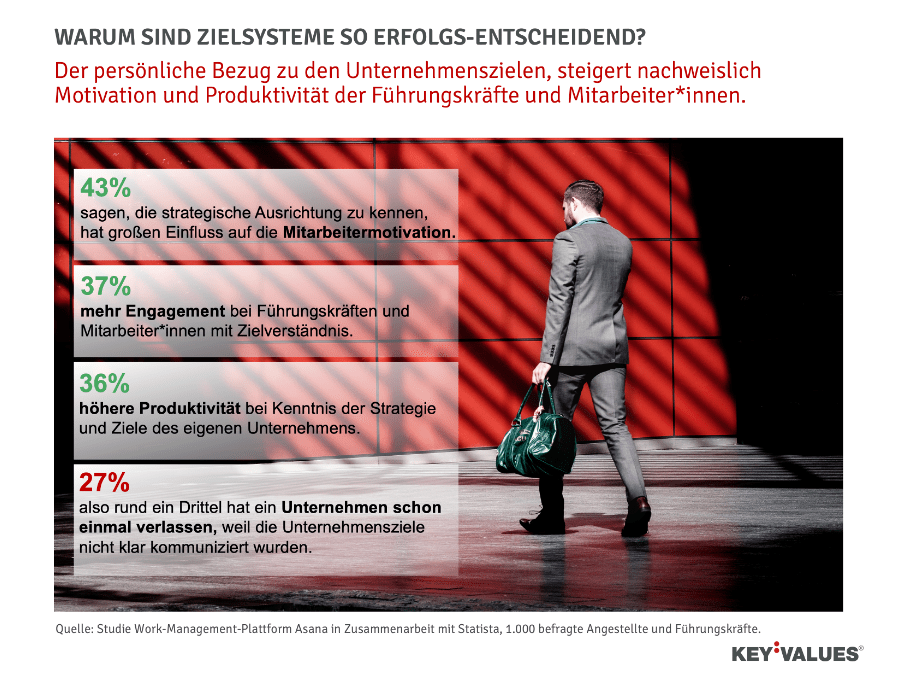Manage strategies and
goals measurably
- Systematic goal setting and achievement
- Resource-based performance management
- Implementation of effective target systems
- MBO and OKR management depending on requirements
- More participation, commitment and motivation
- Shaping corporate culture and future viability
Only those who set clear goals,
communicate them and pursue them
collectively can achieve them.




Performance management is an elementary method for better managing existing resources, especially in difficult times. Corporate success starts with the right targets and consistent target management. The objectives are then harmonised across all hierarchies (alignment) in order to assess and evaluate the degree to which objectives have been achieved over a period of time. The extent to which management can be optimised in the next cycle and what is required to do so is then examined. Feedback mechanisms are used to ensure that the company is working collectively in the right direction, but that experience is also used to learn from mistakes and continuously improve.
Performance management is the company’s navigation system
The following performance management tasks must be taken into account:
- Process design for corporate goal setting
- Target definition and alignment (strategic alignment)
- Target communication and understanding
- Feedback on the process and the degree of target achievement
- Coaching in critical areas
- Goal review and exchange of experience
- Corrective and improvement measures
- Dealing with inadequate performance
Companies that do not use their resources to achieve their corporate goals are wasting money, time, motivation and even jeopardising their competitiveness on a daily basis. On the one hand, they pay salaries for employees without them being able to achieve the desired results.They lack orientation, purpose and participation in the company.The result: frustration among employees, as well as efficiency and profit deficits for the company.Over time, these companies can no longer survive in their markets, as the competition is often already further ahead: it has organised greater cross-company identification of the workforce with the corporate vision and goals, established more proactive commitment to achieving goals, achieved greater goal conformity, established a more productive use of resources – and much more.
If we analyse performance management and the degree of target achievement in companies in the DACH region, we come to the following conclusions.
- Many companies have only established targets for management (board, executive board, divisional management) – the majority of employees are often in the dark and are hardly involved at all
- Some companies do not measure target achievement – and if they do, there is no consequence as to whether targets are achieved or not
- This also makes it difficult for companies to learn – because they do not measure performance and therefore cannot deduce what has been implemented well and poorly and should be optimised in the next planning cycle
- There are organisations that do not communicate their goals sufficiently – it is not uncommon for the illusion to exist that a mission statement in the conference room should give everyone orientation…in addition, the goals cannot be sufficiently understood by everyone or transferred to their own function in the company – they therefore have little participation and operate without orientation
How can companies break through old patterns – and get on the home straight?
- Companies that have recognised the “target deficit” are currently quick to jump on board with OKRs (Objectives and Key Results). However, a number of prerequisites must be met for this target system. If this is not the case, the organisation is quickly overwhelmed and sometimes the opposite is achieved. However, where the basic requirements are in place, OKRs can be a consistent development step towards an organisation that is successfully managed by objectives.
- KEY VALUES has been supporting companies for 20 years in optimising their target system, target tracking and target achievement. After an initial stocktaking and maturity assessment, we work with our clients to develop a target system that is tailored to their individual needs, can be realistically implemented and has a high level of acceptance among management and staff. Different methods such as MBO (Management-by-Objectives) and OKR (Objectives-and-Key-Results) can also be sensibly combined with one another.

